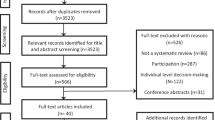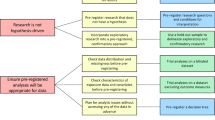Abstract
Child care workers are increasingly asked to respond to calls to demonstrate the effectiveness of their practice. The usual means of doing so has been through the use of traditional group comparison research methods. However, such approaches have a number of shortcomings and tend to provide program level information only. Such data is most useful to managers and funders but questions about whether specific clients are really being helped remain unanswered. Single case methods can provide case-level information to answer questions about the fate of individual clients and can be an ongoing source of feedback to child care workers, thus enhancing accountable practice by enabling them to make informed and well-founded practice decisions. Single case techniques can also be implemented at the unit level and help guide child care teams in making program decisions. This paper discusses the uses and limitations of traditional and single case methods as tools of accountability and provides a number of illustrations of the use of single subject methods in child care work.
Similar content being viewed by others
References
Barlow, D. H. & Hersen, M. (1984).Single case experimental designs: Strategies for studying behavior change. 2nd Ed. New York: Pergamon Press.
Bloom, M. & Fischer, J. (1982).Evaluating practice: Guidelines for the accountable professional. Englewood Cliffs, N.J.: Prentice-Hall.
Cronbach, L. J. and Associates (1980).Toward reform of program evaluation. San Francisco: Jossey-Bass.
Cook, T. D. and Campbell, D. T. (1979).Quasi-Experimentation: Design and analysis issues for field setting. Boston: Houghton Mifflin.
Eisikovits, R. A. & Kashti, Y. (1987). Qualitative research and evaluation in group care: An introduction.Child and Youth Services 8, (3/4). 1–4.
Guba, E. G. & Lincoln, Y. S. (1981).Effective evaluation: Improving the usefulness of evaluation results through responsive and naturalistic approaches. San Francisco: Jossey-Bass.
Hornick, J. and Burrows, B. (1988). Program Evaluation. In R. M. Grinnell, Jr. (Ed.)Social work research and evaluation, 3rd Ed. Itasca, IL.: F. E. Peack. 400–420.
Hudson, W. W. (1982).The clinical assessment package: A field manual. Homewood, IL: Dorsey Press.
Lerman, P. (1968). Evaluative studies of institutions for delinquents: Implications for research and social policy.Social Work 13, (7). 55–64.
Libb, J. W., House, C. & Green, M., (1973). Charting and contingency management procedures in a children's home.Child Care Quarterly 2, (2). 113–123.
Millham, S. & Bullock, R. (1987). A holistic approach to the evaluation of residential institutions.Child and Youth Services 8, (3/4). 5–18.
Nelson, R. H., Singer, M. J. & Johnsen, L. O. (1978). The application of a residential treatment evaluation model.Child Care Quarterly 7, (2). 164–173.
Patton, M. Q. (1986).Utilization-focused evaluation. Beverly Hills, CA.: Sage.
Payne. C. (1981). Research and evaluation in group care. In F. Ainsworth and L. Fulcher (Eds.),Group care for children: Concept and issues. London: Tavistock. 247–270.
Polsky, H. (1962).Cottage Six: The social systems of delinquent boys in residential treatment. New York: Russell Sage Foundation.
Porter, C. (1982). Qualitative research in child care.Child Care Quarterly 11, (1). 44–54.
Posavac, E. J. & Carey, R. G. (1985).Program evaluation: Methods and case studies, 2nd Ed. Englewood Cliffs, NJ: Prentice-Hall.
Rossi, P. E. & Freeman, H. E. (1985).Evaluation: A systematic approach, 3rd ed. Beverly Hills, CA: Sage Publications.
Shelley, M. H. (1982). The role of evaluation in child care research.Child Care Quarterly 11, (1). 22–43.
Weiss, C. H. (1972).Evaluation research. Englewood Cliffs, NJ: Prentice-Hall.
Wilson, D. R. & Lyman, R. D. (1983). Computer-assisted behavioral assessment in residential treatment.Residential Group Care & Treatment 1, (4). 25–33.
Author information
Authors and Affiliations
Rights and permissions
About this article
Cite this article
Gabor, P. Increasing accountability in child care practice through the use of single case evaluation. Child Youth Care Forum 18, 93–109 (1989). https://doi.org/10.1007/BF01184757
Issue Date:
DOI: https://doi.org/10.1007/BF01184757




